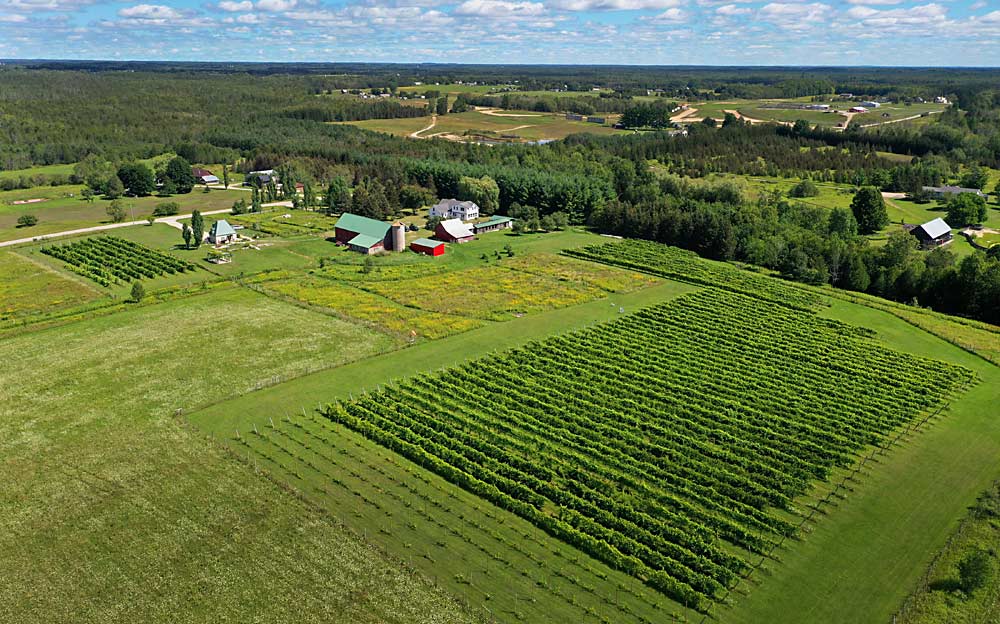
Growing grapes in Michigan’s Lower Peninsula has always been a risky business, so most vineyards in the state hug the eastern shoreline of Lake Michigan to take advantage of its moderating effects on temperature. And yet, a handful of vineyards are pushing the envelope by operating where summers are even shorter, winters are harsher and forests make up 85 percent of the land area. Welcome to viticulture in the Upper Peninsula.
A warm(er) spot on the south-central U.P.
One such vineyard is Northern Sun Winery, located in the south-central U.P. about 7 miles inland from the northwest coast of Lake Michigan. Dave and Susie Anthony started the farm in 1999 and just transferred the 5.5-acre vineyard and 10,000-bottle-a-year winery to new owners Wendy and Melissa Middaugh, along with vineyard manager and winemaker Jonathan Bovard, who is also Wendy’s son.
“This has been the hardest summer of our lives,” Wendy Middaugh said. None of the three had vineyard or winemaking experience, although her grandparents owned a small cherry farm in the Lower Peninsula. Fortunately, the Anthonys share what they have learned.
“Dave Anthony comes out at least every week to be in the vineyard, and Jonathan’s got him on speed dial, so they talk all the time about every little thing,” Wendy said. “And then Susie has been mentoring Melissa and me on all the other areas: the marketing and business side, all these licenses … there are just so many things to do.”
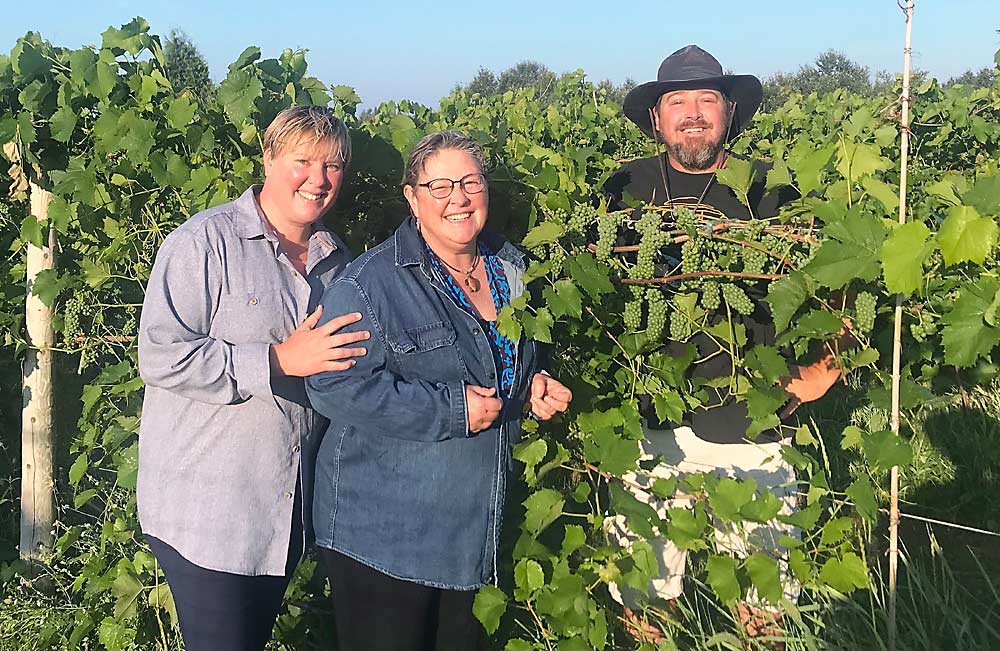
So far, everything seems to be going quite well, Bovard said. In late July, the crop looked heavy enough to produce all of Northern Sun’s wines, with some to spare. He credits the vineyard’s location in a narrow, comparatively warmer zone of the U.P. In addition, the typically deep snow cover in winter provides a protective blanket to help the vines survive the cold. They also grow on south-facing slopes.
The Anthonys planted cold-hardy grapes, such as Marquette, Brianna and La Crescent, which they manage with aggressive leaf removal.
“For the reds specifically, we have to remove all the leaves from the fruit-bearing zone, both morning side and evening side, so where your fruit is, it’s just fruit, and then above that you have your leaves as solar panels,” Bovard said. For the whites, they tuck leaves down to make sure the grapes have plenty of airflow and sunshine.
Day length in the U.P. also makes a difference. “I think the magic is the northern sun, so we have longer days in the summer and the grapes are able to get just that little extra hour or two hours of sun, which makes up for the short season,” Melissa Middaugh said.
Carving a niche in the eastern U.P.
Meanwhile, Jim and Robin Barker are in their sixth year of running the End of the Road Winery in the eastern U.P. community of Germfask, which is about 3 miles from the rugged wilderness and wetlands of Seney National Wildlife Refuge and 16 miles inland of the northern shore of Lake Michigan. Before planting, the Barkers attended conferences and classes in Minnesota to learn about cold-hardy varieties and how to grow them.
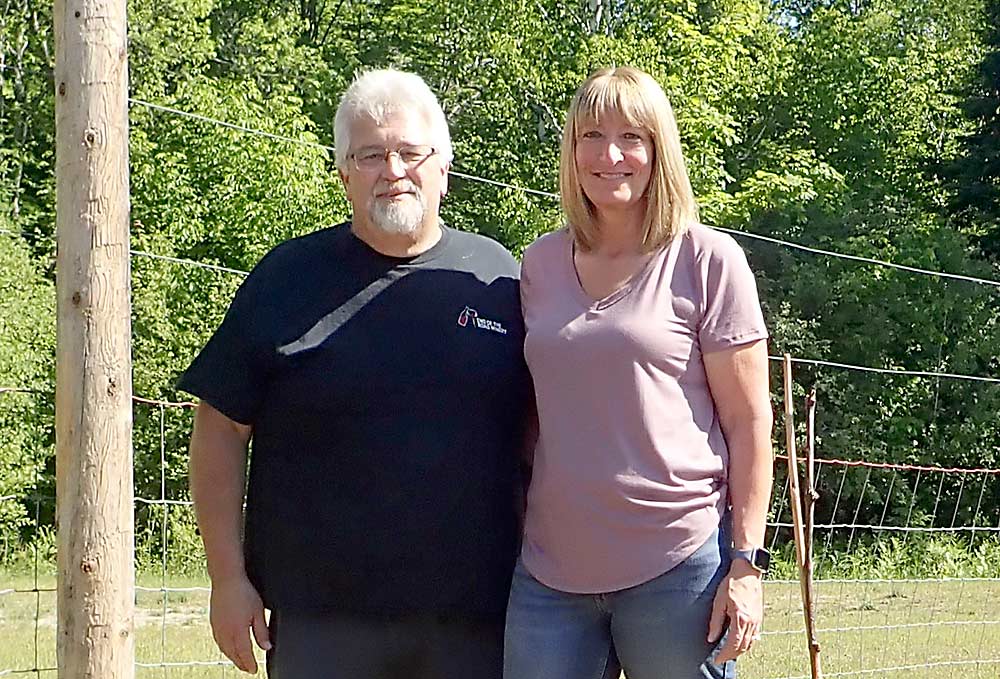
Some of the benefits of their location included limestone soil that is very good for grapes, Jim Barker said. And the U.P. climate seems to keep insect pest numbers very low. Bovard said he only had to spray a single time as of late July. Barker said he not only has never seen any spotted wing drosophila in his vineyard, but he also has rarely found a need to apply insecticides.
As at Northern Sun, the Germfask area gets good snow in the winter, usually plenty to mitigate extreme cold temperatures — but “usually” does not mean always. “We’ll get 20 below for days and days on end, and if we get snow cover, that helps. But some years we don’t get that cover, so the vines will freeze back,” Barker said.
Heavy damage from deer is also a big problem.
“We’ll think we’re going to get 2 ton of grapes and in two or three days, the deer will come in, tear the fence down and eat three-quarters of them, so it’s a struggle,” he said.
Birds also take a substantial number of grapes. “Probably the next things (on our list) will be some sort of netting, along with some fencing,” Robin Barker said.
Those efforts pay off, however, because they have a good market for their wines. Although they originally planted about a thousand vines with hopes of making just a couple hundred gallons of wine — plenty since they were both still holding down full-time jobs off the farm — their wines were a hit.
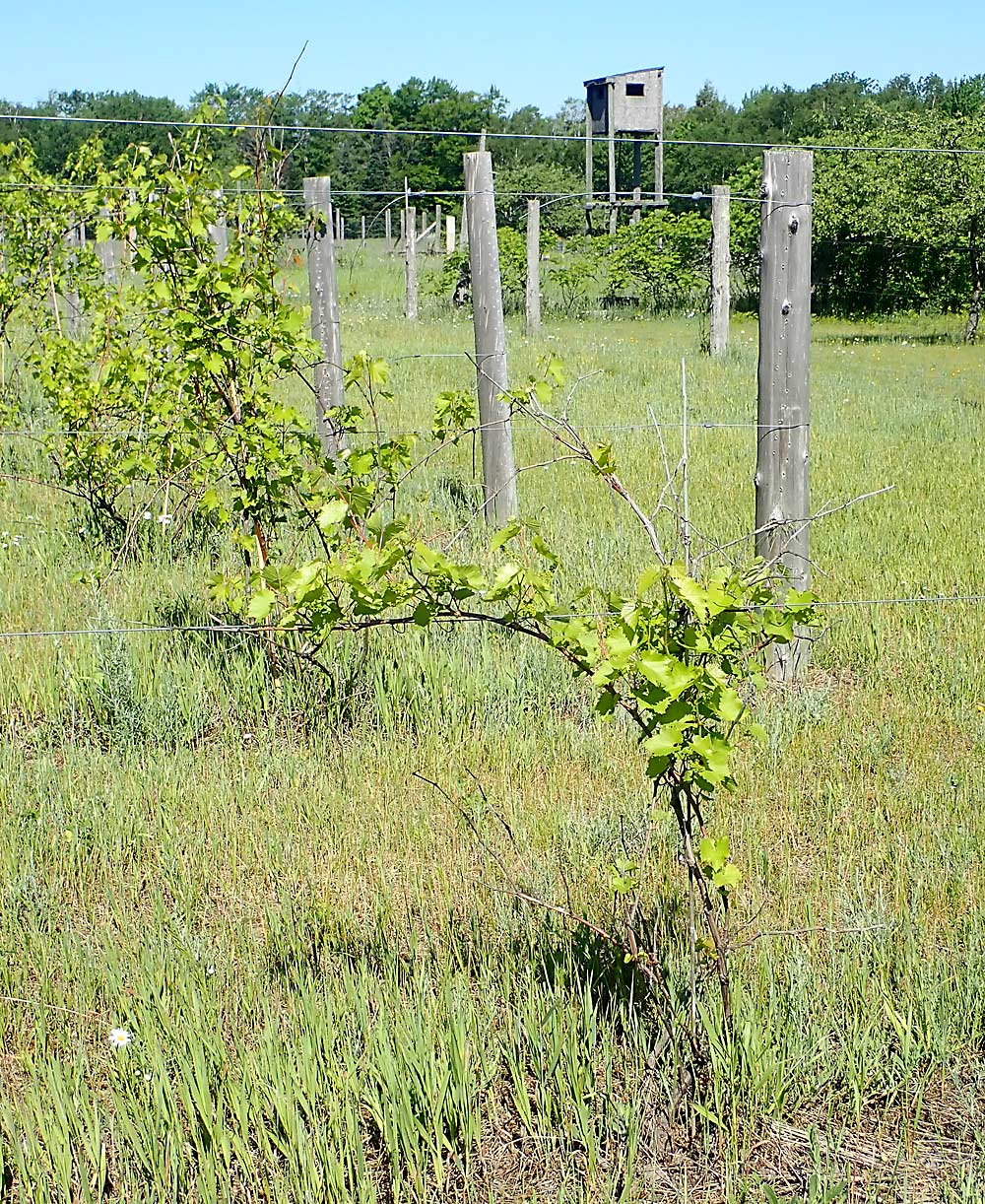
Their vines, however, have not been as successful.
“We are still a little too far north for them,” Robin Barker said. They still have 3.5 acres of vineyard, but they supplement their harvest with the same varieties grown elsewhere, mainly from a vineyard in the far south-central U.P.
“JHB is our only estate wine. We take all the grapes that we pick here, crush just them, and put it in one vat to make one batch. And it’s really good,” Jim Barker said, noting that the sweet, small-production wine — 10–12 cases from the 2019 harvest — is named after his late father, James H. Barker.
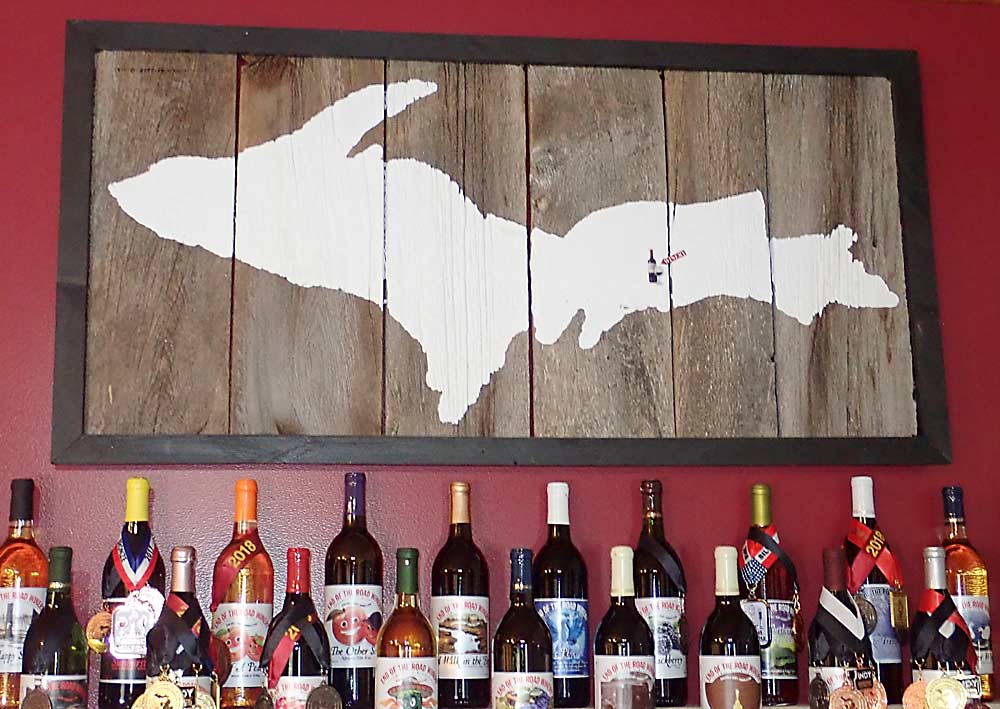
Finding an audience
Both End of the Road and Northern Sun wineries say they are seeing high demand for U.P. wines from locals and summer tourists.
“When things opened up at the end of May last year (after the initial COVID-19 surge), we were already busy by the second week in June. The same thing happened this year,” said Robin Barker.
At one point, some of the wineries were considering starting a U.P. wine trail for tourists, “but that fell through because we’re 35–40 miles from one another,” she said. Actually, her husband reminded her, the nearest winery recently closed, so the End of the Road Winery is now some 90 miles from the nearest winery. “Right,” she said with a chuckle. “It would be hard to call that a wine trail.”
At Northern Sun, the Middaughs stepped into a business that already had a solid reputation.
“We inherited something where people come in and love it,” Melissa Middaugh said. “Or — and this is the fun part and it happens every day — someone sips our wine and is surprised to find such excellence in the U.P.”
—by Leslie Mertz






Leave A Comment